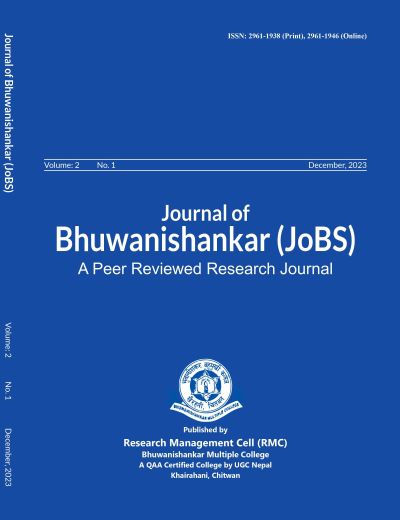Uncovering the Benefits and Challenges of Shadow Education in English Language Education-A Phenomenological Exploration
DOI:
https://doi.org/10.3126/jobs.v2i1.62160Keywords:
Shadow education, English language education, challenges, benefitsAbstract
Shadow education, also known as private tutoring, has gained popularity worldwide in countries where English is taught as a second or foreign language. In spite of its popularity, very little is known about the benefits and challenges of private tutoring in English language education. The aim of this study was to explore the benefits and challenges associated with shadow education in the context of teaching English. To achieve this, an interpretive phenomenological approach was adopted, focusing on Vygotsky’s socio- cultural theory as a framework. The data for this research was collected through interviews with participants who actively sought shadow education to improve their English language skills. Three participants waiting for the 12th grade examination results were purposefully selected. Data collection involved conducting interviews, recording audio responses, transcribing the recordings, and taking field notes to capture observations and contextual details. The findings revealed that shadow education has an impact on student’s personal growth and empowerment by enabling them to explore their potential and shape their identity. However challenges such as workloads, financial burdens, and conflicts with existing curricula can impede its effectiveness. This study contributes to the existing knowledge on shadow education by providing an understanding of its dynamics within the context. The study provides insights for policy makers, educators, and researchers by examining the challenges and benefits experienced by individuals involved in shadow education for English language learning. It aims to develop strategies that address the needs and concerns of students engaging in shadow education in Nepal.
Downloads
Downloads
Published
How to Cite
Issue
Section
License

This work is licensed under a Creative Commons Attribution-NonCommercial-ShareAlike 4.0 International License.
This license allows reusers to distribute, remix, adapt, and build upon the material in any medium or format for noncommercial purposes only, and only so long as attribution is given to the creator. If you remix, adapt, or build upon the material, you must license the modified material under identical terms.




